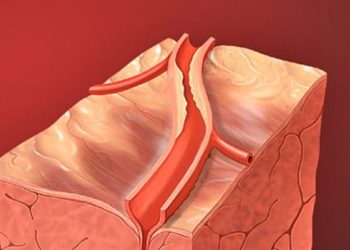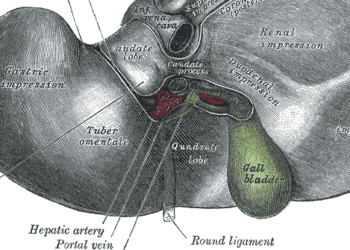Combination therapy comparable to high-intensity statins for LDL cholesterol
Image: PD
1. A mid-intensity statin plus ezetimibe lowered LDL-C more than high-intensity statin monotherapy in patients with either atherosclerotic cardiovascular disease (ASCVD) or diabetes mellitus (DM).
2. A low-intensity statin plus bile acid sequestrant lowered LDL-C more than mid-intensity statin monotherapy in patients with hyperlipidemia.
Evidence Rating Level: 1 (Excellent)
Study Rundown: The new recently released guidelines for treatment of high cholesterol by the ACC/AHA emphasize long-term statin therapy as the best therapeutic strategy to reduce both LDL-C and prevent ASCVD progression. However, these guidelines do not adequately address the therapeutic options for patients who are intolerant of statins. This systematic review found that mid-intensity statin plus ezetimibe combination therapy reduces LDL-C 5% to 15% and 3% to 21% more than high-intensity statin monotherapy among patients with ASCVD and DM, respectively. It also showed that low-intensity statin plus bile acid sequestrant lowered LDL-C 0% to 14% more than mid-intensity statin monotherapy in patients with hyperlipidemia. There was insufficient evidence to examine the effect of adding a bile acid sequestrant in patients with ASCVD or DM. There was also insufficient data available to compare drug regimens including fibrates, niacin or omega-3 fatty acids against statin monotherapy.
This study was limited in that it could not compare the drug regimens’ long-term clinical outcomes, adherence rates or adverse event occurrence. This happened because the desired information was not provided in the RCTs reviewed by the authors and because none of the trials included in the review lasted longer than one year. Also, none of the selected trials examined patients with statin intolerance. This study uncovered the possible benefits of statin combination therapy with either bile acid sequestrants or ezetimibe for patients who cannot tolerate high-intensity statin monotherapy, but it also clearly highlights the need for more trials comparing the long-term clinical benefits, adherence and harms of these different LDL-lowering therapeutic regimens.
Click to read the study in the Annals of Internal Medicine
Relevant Reading: A review of the rationale for additional therapeutic interventions to attain lower LDL-C when statin therapy is not enough
In-Depth [systematic review]: The authors searched several medical journal databases, references of pertinent review articles and studies on ClinicalTrials.gov for randomized, controlled trials that fit their predetermined eligibility criteria. These criteria targeted trials including adult patients with a LDL-C level at or above 190 mg/dL that compared statin monotherapy with a combination therapy in these patients. The strength of evidence (SOE) of each trial was assessed by evaluating the sources of bias, consistency of results and precision. No studies were found that compared statin plus bile acid sequestrant to statin monotherapy in patients with ASCVD or DM, but in patients with hyperlipidemia, the combination therapy lowered LDL-C 0% to 14% more than monotherapy (moderate SOE). Analysis of studies comparing combination therapy with statin plus ezetimibe to statin monotherapy in patients with ASCVD found that the combination therapy decreased LDL-C 5% to 15% more than the statin monotherapy (moderate SOE). Among patients with DM, combination therapy lowered LDL-C 3% to 21% more than statin monotherapy (moderate SOE). There were no statistically significant differences in treatment adherence or adverse event occurrence observed in any of the trial analyses.
More from this author: New ACC/AHA cholesterol guidelines emphasize the appropriate-level statin treatment, Healthier lifestyle linked with longer telomeres in benign prostate cancer, Among HIV-positive infants, early protease inhibitor-based treatment effective, MERS remains poorly understood, deadly
©2012-2014 2minutemedicine.com. All rights reserved. No works may be reproduced without expressed written consent from 2minutemedicine.com. Disclaimer: We present factual information directly from peer reviewed medical journals. No post should be construed as medical advice and is not intended as such by the authors, editors, staff or by 2minutemedicine.com. PLEASE SEE A HEALTHCARE PROVIDER IN YOUR AREA IF YOU SEEK MEDICAL ADVICE OF ANY SORT.







